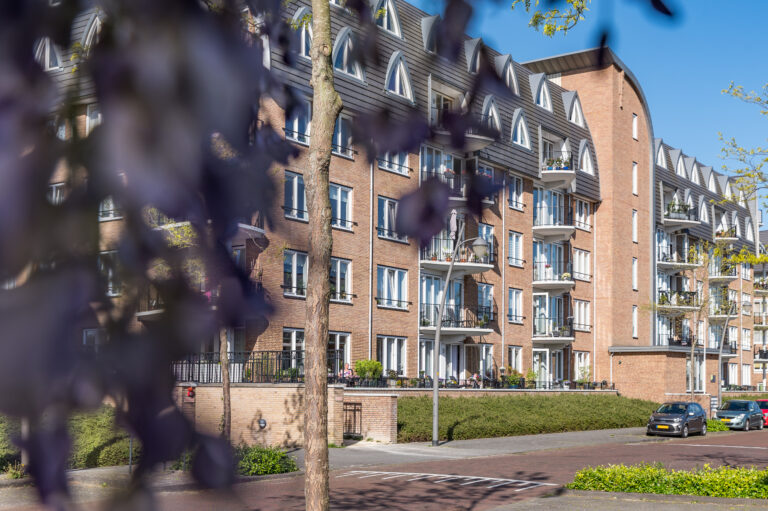The past few years have brought major changes to the real estate market, especially for private landlords. New legislation such as the Affordable Rent Act and ongoing uncertainty about Box 3 taxation have prompted many property owners to reconsider: is it still worthwhile to continue letting? Or is this the right moment to sell?
It’s a logical question—especially when a tenancy ends. When a tenant moves out, most landlords take the opportunity to revisit their strategy. Selling, however, isn’t always the wisest choice. In this blog, we explain why it can be smart to look beyond the near-distant future and the value letting can deliver in the long run.
Changing legislation and tax pressure: what exactly has changed?
The Affordable Rent Act has caused a shift in the points-based rental system, meaning more properties may fall under rental regulation. At the same time, the discussion around Box 3 taxation continues, and the way real estate is taxed may become less favourable for private investors.
The result? Uncertainty. And uncertainty pushes many landlords to play it safe: by selling, while they still can.
But is that really the best move?
The long-term value of real estate
One aspect often overlooked in the rent-or-sell debate is that real estate tends to increase in value over time. While no market comes with guarantees, past decades show a consistent average increase of value of 3 to 5 percent per year. On a €400,000 property, that’s an annual increase of €12,000 to €20,000—without lifting a finger.
If you sell, that growth stops. You don’t just lose rental income, you also forgo future capital growth. And that’s where short-term thinking starts to cost you in the long run.
Smart letting is more valuable than you think
Another frequently underestimated factor is the potential to optimise your rental income. With relatively simple upgrades—such as insulation, double glazing, a high-efficiency boiler or an updated kitchen or bathroom—a property can significantly improve its score in the points system. The result? A higher score, and a higher (regulated) rent.
Interhouse actively advises landlords on this matter. We know the scoring system, can determine where the possibilities lie and offer clear insights into how an investment of a few thousand euros can lead to higher rental returns. In some cases, the increase is enough to push a property above the liberalisation threshold—granting more freedom in pricing and rental terms.
Outsource property management: fewer worries, better returns
Some landlords consider selling simply to avoid the hassle. Maintenance, tenant communication, ever-changing regulations—it can feel like a full-time job. But it doesn’t have to be.
By outsourcing your property management to an experienced partner like Interhouse, you can enjoy the benefits of rental income and increase of value —without the stress. We take care of everything: from selecting the right tenant to technical maintenance and legal matters.
A few tax clarifications:
There’s a lot of confusion about taxation of primary residences and capital gains in the new Box 3 system. The Dutch government provides clarity:
-
The primary residence stays in Box 1 and will not move to Box 3. The calculation remains: EWF (% of your property’s value or “WOZ-waarde”) minus mortgage interest deduction
-
Surplus value on your primary residence is not taxed in Box 3. Only in the case the property is sold and the surplus value is placed in a savings account, will the interest on that balance be taxed. The surplus value itself is not taxed.
You can always sell later
Ultimately, it’s your property, your asset and your decision. Selling is always an option. But once sold, it’s final. The property is gone, the value increase stops and the returns are no longer yours. Going back isn’t as simple.
Letting, on the other hand, gives you flexibility. Especially when working with fixed-term rental agreements within the legal framework, you stay in control of your asset. And as long as the property continues to increase in value, so does your wealth.
Considering selling anyway?
Some landlords consider selling in order to invest the released capital elsewhere. Popular alternatives include crypto or real estate in so-called ‘promising’ foreign markets such as Dubai or Spain. These options are widely promoted on (social) media. Everyone is free to decide where to invest their capital, but be sure to assess the risks carefully. Consider factors like unpredictable regulations, economic instability, limited control from afar, and a high dependency on third parties.
Compared to that, investing in Dutch real estate continues to be a stable, transparent, and reliable choice—especially when working with a local specialist who takes care of the management for you.
So, what’s the right timing for you?
At Interhouse, we come across landlords with doubts every day. We listen to their story, analyse the situation and offer advice. Sometimes, selling truly is the best step. But in many cases, smart letting turns out to be the better long-term strategy—especially when returns are solid, the property continues to be of interest in the property market and the management is handled by the right party.
Curious about what’s wise in your situation? We’re happy to help. Not based on guesswork, but on data, returns and your personal goals.
What’s your story?
Get in touch with Interhouse and discover what smart letting advice can mean for your property.
More blogs

Temporarily letting a property meant for your studying child, this is how it works afer July 1st 2024

Temporary letting through the Vacancy Act: how to avoid vacancy and high costs

